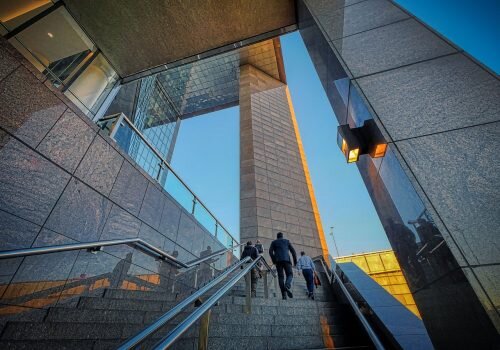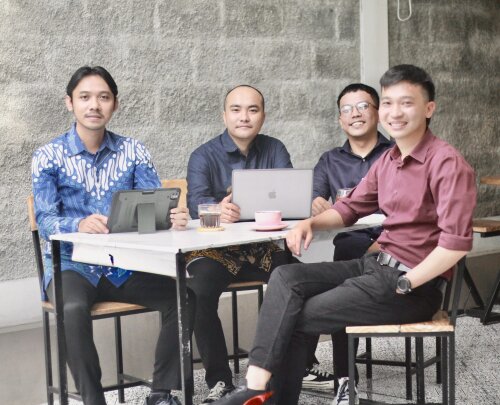Best Juvenile Law Lawyers in Indonesia
Share your needs with us, get contacted by law firms.
Free. Takes 2 min.
Or refine your search by selecting a city:
List of the best lawyers in Indonesia
About Juvenile Law in Indonesia
Juvenile Law in Indonesia governs legal proceedings involving minors. The primary focus is on the rehabilitation and reintegration of young offenders into society. The legal framework is derived from Law No. 11 of 2012 on the Juvenile Criminal Justice System (JCJS). It emphasizes restorative justice, non-litigation approaches, and maintaining the best interests of the child during judicial proceedings. This law applies to children in conflict with the law, victims, and witnesses under the age of 18 years.
Why You May Need a Lawyer
Legal assistance in Juvenile Law is often required in a variety of situations. These include cases where a minor is accused of a crime, being a victim of criminal offences, or being involved as a witness to crime. Lawyers can help navigate complex legal processes, advocate for reduced sentences or alternative resolutions, and provide a defense that considers the minor's future and well-being. Moreover, if there are disputes over the custody or guardianship of a child, consulting a lawyer can help in mediating and resolving these issues.
Local Laws Overview
The Juvenile Criminal Justice System in Indonesia outlines several key principles and processes:
- Age of Criminal Responsibility: Children below the age of 12 cannot be prosecuted; instead, they are returned to their parents or placed under the responsibility of the state.
- Restorative Justice: The system encourages settlements outside court through restorative measures and diversion programs.
- Detention as a Last Resort: The law mandates that detention be a last resort, and children have the right to legal assistance from the time of their arrest.
- Specialized Juvenile Courts: Cases involving minors are handled in juvenile courts, with procedures designed to protect the rights and well-being of the child.
- Maximum Penalty: If a minor is convicted, the punishment is mitigated to half of that prescribed for adults, with a focus on educational and character-building measures.
Frequently Asked Questions
What is the age of criminal responsibility in Indonesia?
In Indonesia, the age of criminal responsibility is 12 years. Children under this age cannot be legally prosecuted and are subject to care and protection measures.
What is the primary goal of the Juvenile Criminal Justice System?
The main goal is to rehabilitate young offenders while ensuring their rights and minimizing the negative impact of judicial processes on them.
What does 'diversion' mean in juvenile cases?
Diversion refers to resolving criminal cases outside the formal judicial process through mediation and community service, focusing on rehabilitation rather than punishment.
How can a lawyer assist in a juvenile case?
A lawyer can navigate legal proceedings, advocate for alternative resolutions, and ensure that the rights of a minor are upheld throughout the judicial process.
Can juveniles be sentenced to prison in Indonesia?
Imprisonment is a last resort. When necessary, sentenced minors may be placed in educational facilities designed for rehabilitation rather than traditional prisons.
Are there any special courts for juveniles?
Yes, Indonesia has specialized Juvenile Courts designed to handle cases involving minors, with processes adapted to the needs of young offenders.
What if a child is a victim of a crime?
The law provides specific protections for child victims, ensuring they have access to legal assistance and measures are taken to minimize their trauma.
Do juveniles have the right to a lawyer?
Yes, minors have the right to legal assistance from the moment of their arrest throughout the judicial process.
What is the role of parents in juvenile cases?
Parents or guardians are often involved in the legal process to support and represent the interests of their child alongside legal professionals.
How does the system ensure the best interests of the child?
By prioritizing rehabilitation, privacy, and minimizing detention, the system aligns itself with the best interests of the child at every stage of legal proceedings.
Additional Resources
For more information, consult the following resources:
- The Indonesian Ministry of Justice and Human Rights, which provides legal aid programs and support for juveniles.
- The National Commission for Child Protection (Komisi Nasional Perlindungan Anak), which offers resources and advocacy for children's rights.
- Local social services that provide rehabilitation programs and support for juveniles in conflict with the law.
Next Steps
If you require legal assistance in Juvenile Law, consider the following steps:
- Consult a lawyer specializing in Juvenile Law to understand your rights and options.
- Seek help from local legal aid organizations if you require financial assistance.
- Engage in community programs or mediation efforts recommended by legal professionals.
- Stay informed about developments in Juvenile Law and your obligations as a guardian or involved party.
Lawzana helps you find the best lawyers and law firms in Indonesia through a curated and pre-screened list of qualified legal professionals. Our platform offers rankings and detailed profiles of attorneys and law firms, allowing you to compare based on practice areas, including Juvenile Law, experience, and client feedback.
Each profile includes a description of the firm's areas of practice, client reviews, team members and partners, year of establishment, spoken languages, office locations, contact information, social media presence, and any published articles or resources. Most firms on our platform speak English and are experienced in both local and international legal matters.
Get a quote from top-rated law firms in Indonesia — quickly, securely, and without unnecessary hassle.
Disclaimer:
The information provided on this page is for general informational purposes only and does not constitute legal advice. While we strive to ensure the accuracy and relevance of the content, legal information may change over time, and interpretations of the law can vary. You should always consult with a qualified legal professional for advice specific to your situation.
We disclaim all liability for actions taken or not taken based on the content of this page. If you believe any information is incorrect or outdated, please contact us, and we will review and update it where appropriate.
Browse juvenile law law firms by city in Indonesia
Refine your search by selecting a city.
















